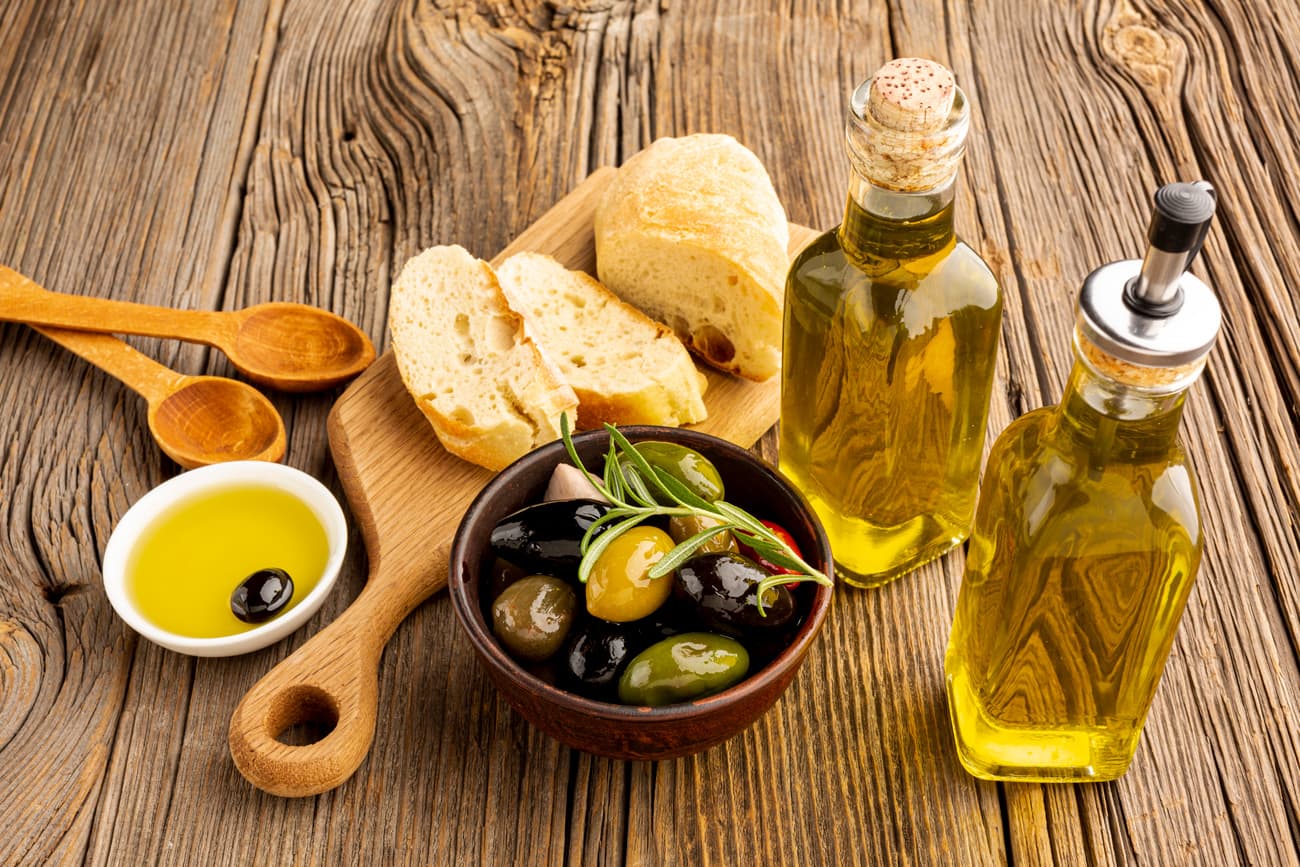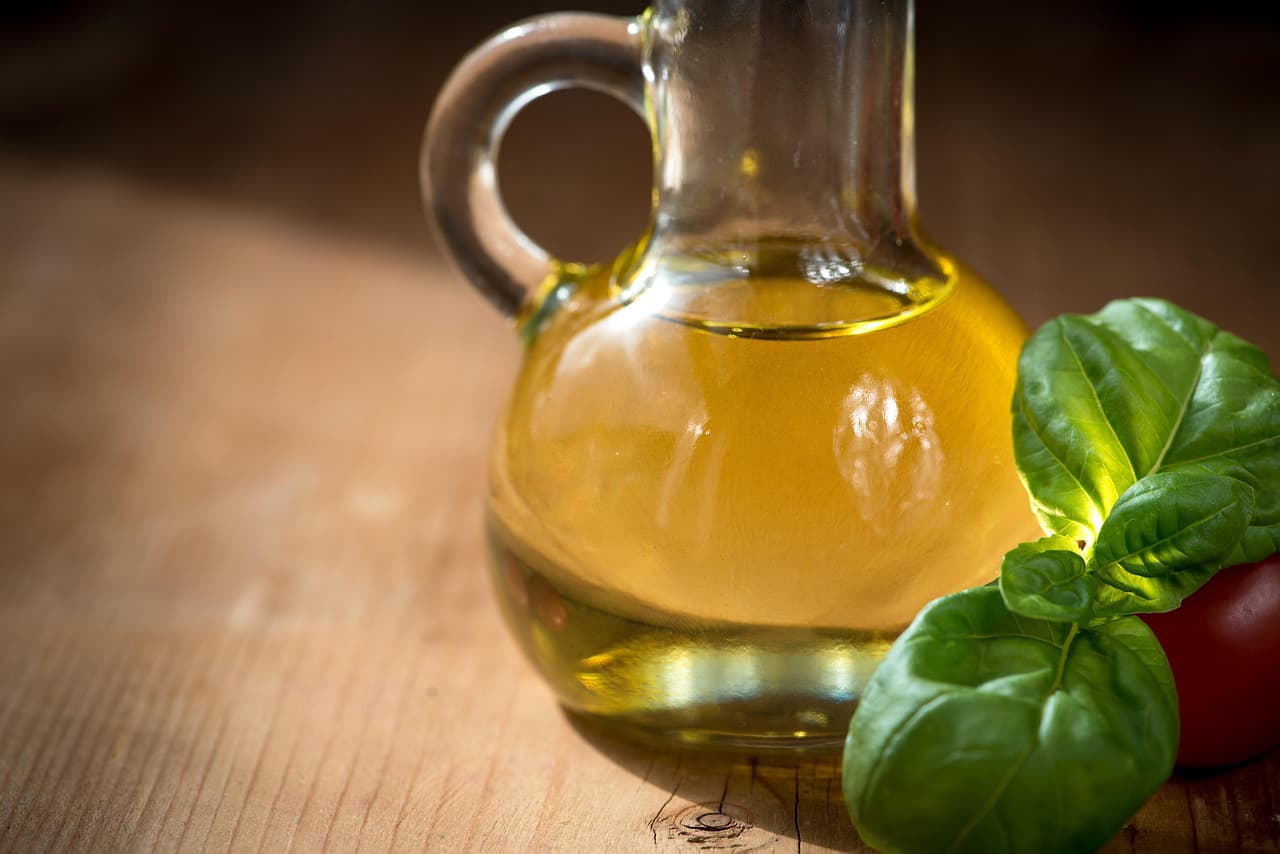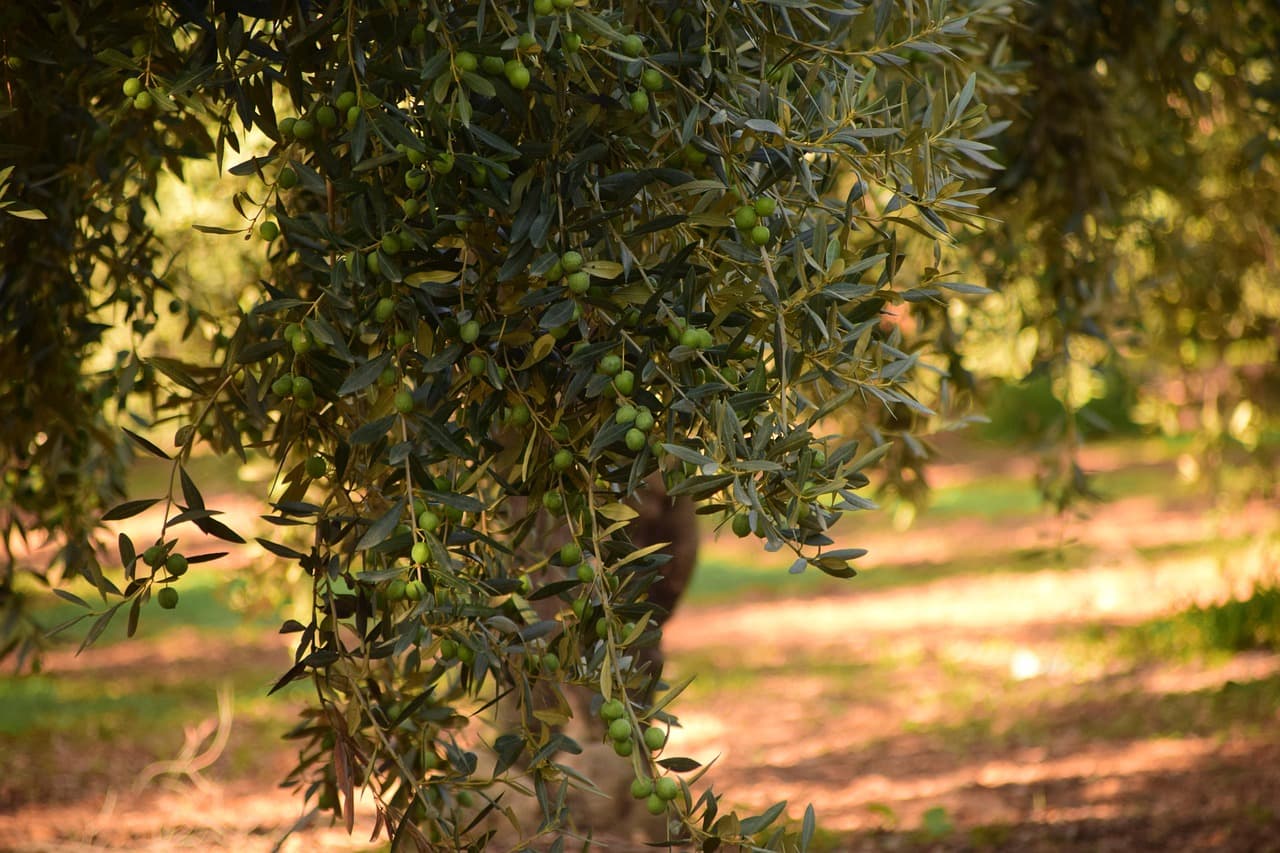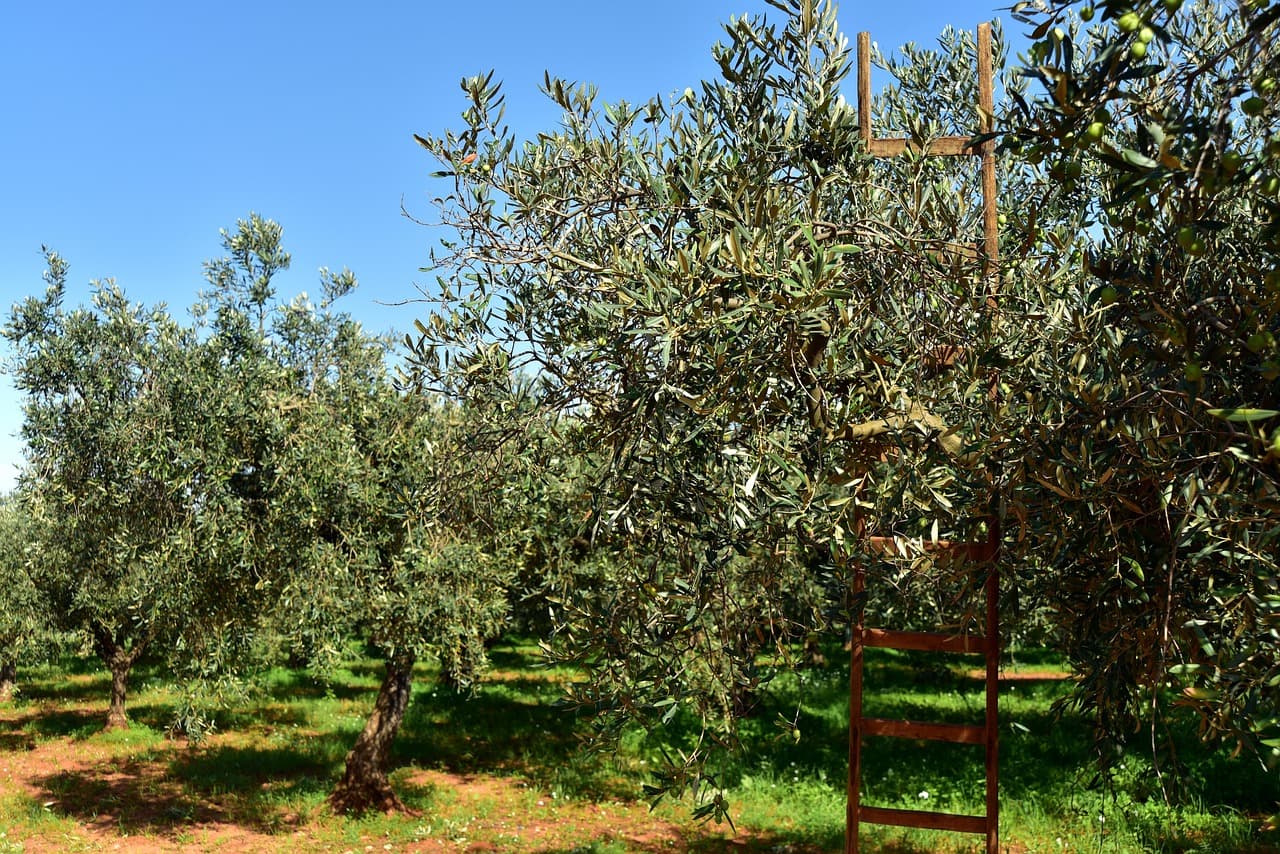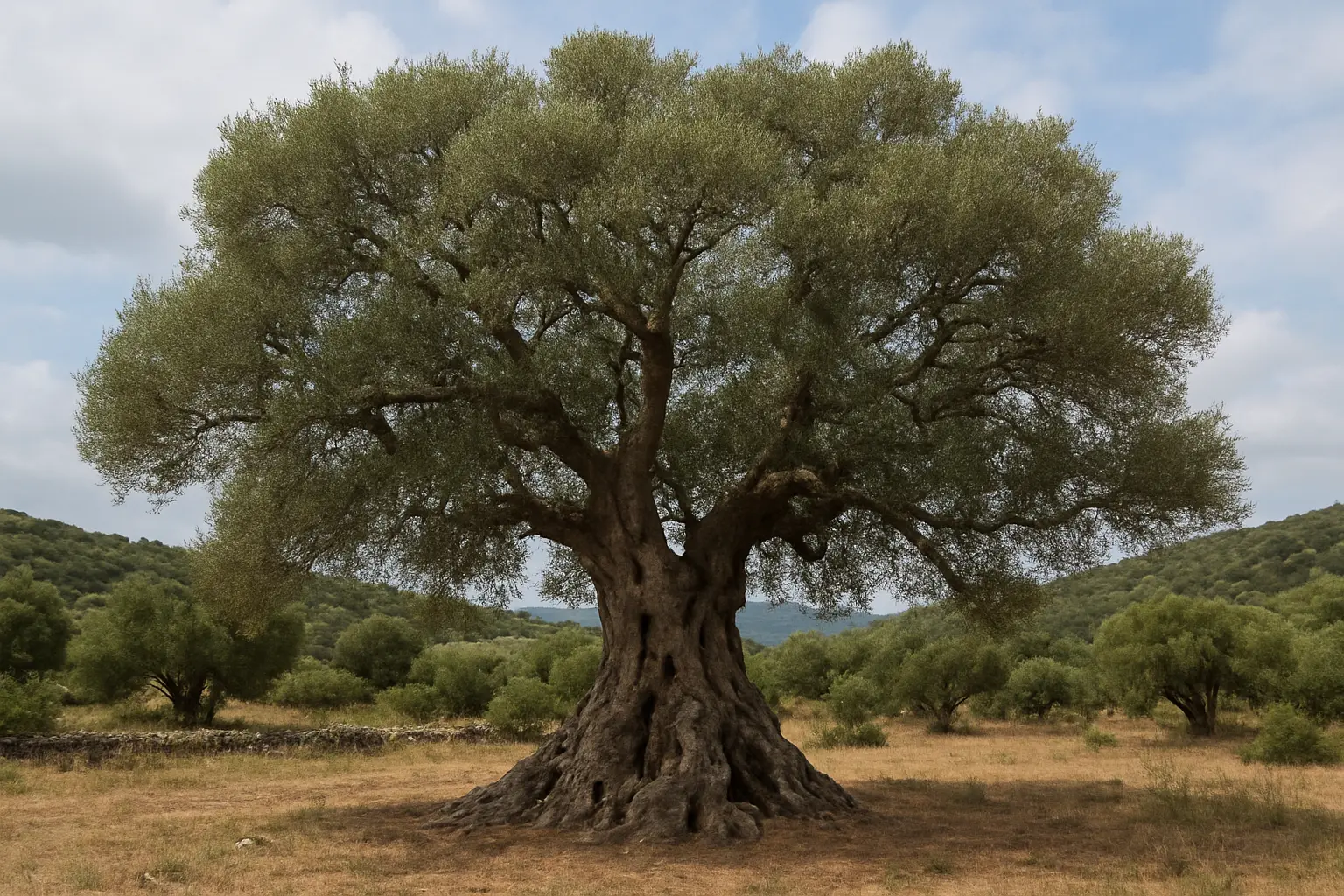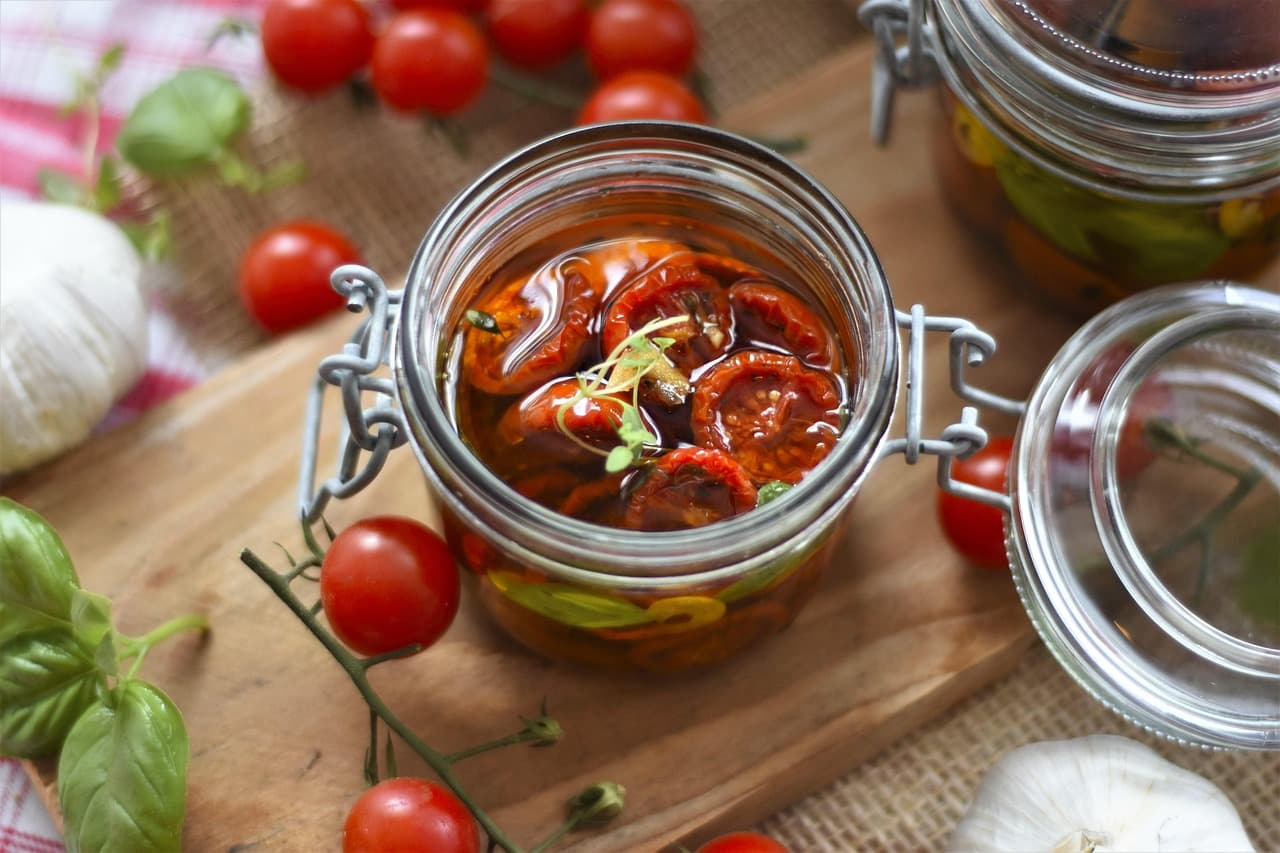
You’ve always been told that extra virgin olive oil is good for you and yet you’ve watched people count calories drop by drop, terrified that an extra drizzle might ruin their diet. Many assume that all olive oils are the same, as long as the label says “extra virgin.” But that’s not true. Real quality, the kind rich in polyphenols, can make the difference between a simple condiment and an elixir of longevity.
And yet, how many of us grab the discounted bottle at the supermarket, unaware of the heritage hidden inside that other bottle, perhaps handcrafted and coming from the hills of Sardinia?
In this ancient land, olive growing is history and pride. Bosana is the island’s main native variety, expressing the long-standing olive-growing tradition of the island.
Think about it: a windy, sun-drenched island where twisted olive trees have sunk their roots for centuries into generous red soil, alongside sheep and nuraghi. Its geographical features have allowed unique cultivars to survive: Bosana, Semidana, Tonda di Cagliari, Nera di Villacidro, varieties that exist only here. And from these uncommon olives comes an oil scented with wild herbsmakes your mouth wate and tasting of artichoke and almond, unlike any other.
The paradox? While Sardinians guarded this green treasure, the rest of the world chased exotic superfoods and miracle supplements.
We filled our cupboards with chia seeds and omega-3 pills, forgetting that our grandparents already had a quintessential Mediterranean superfood on their tables. We even fell for bizarre trends: lemon juice at dawn, apple cider vinegar gulps like magic potions… and now the latest Western craze is a spoonful of olive oil on an empty stomach in the morning (they call it a wellness shot).
Ironic, isn’t it? In Sardinia, they’ve been doing it forever, without giving it a trendy name. While everyone counts calories, some locals generously drizzle new-season olive oil over pane carasau and vegetable soups and live better than any ultra-fit city dweller.
Maybe the real problem is that we’ve complicated health, forgetting simple wisdom: a drizzle of good, natural oil is worth more than a thousand pills.
In the heart of the Nuoro region, on a November morning, young Dario, a newly minted nutrition professional back home for the holidays, gets up early to help Grandma Caterina harvest the olives. He believes he can stay fit with protein bars and dressing-free salads and looks skeptically at his grandmother’s “high-calorie” habits. But that morning, something changes.
At dawn, rows of olive trees are wrapped in a light mist. Ninety-year-old Caterina, moving with ease, ties on her floral headscarf and grabs a small wooden rake.
“Ready to work up a sweat?” she teases her sleepy grandson.
Dario forces a smile: “Nonna, take it easy… and be careful with how much oil you’ll use later, you know what the doctor”.
But she’s already ahead, agile among the trees, laughing: “Let the doctor come! First we finish here, then we’ll talk…”
The open-air olive mill in their grove looks just as it always has. Green nets stretched under silver canopies, skilled hands (with the help of light tools) picking olives from the branches one by one. Olive harvesting in Sardinia is an ancient ritual passed down through generations: no shortcuts, no fallen fruit, “too easy and olives on the ground are half gone already,” says Grandma Caterina and certainly no chemicals allowed to make the drupes drop.
Only patience, natural timing and teamwork. The younger grandchildren gently shake the lower branches; she, the eldest, directs and selects the best olives.
Within a few hours, crates full of green and purple olives fill the tractor: time is tight, because the olives must be cold-pressed the same day at the village mill. The aroma released in a mix of cut grass, artichoke and unripe fig that is so intense it makes your mouth water.
Dario, sweaty and with a few leaves in his hair, can’t help noticing his grandmother’s energy: tireless. Maybe, he thinks, this oil really does run in her veins.
That evening, once the harvest is done, comes the moment of truth. The table is set with warm pane carasau toasted on the coals and a bowl of the new olive oil in the center. The liquid is thick, golden green, almost alive. “Come on, taste it!” urges Grandma Caterina, dipping the bread and handing it to him.
Dario hesitates: he knows the oil is excellent, but his nutritionist brain is on red alert about calories. He bites anyway. It’s an explosion of flavor: bitter and spicy, yet fresh, with hints of artichoke and sweet almond. “Good, isn’t it? Does it sting your throat?” she asks playfully. “Yes… quite a bit!” he admits, coughing lightly. She smiles triumphantly: “Good! That means it’s full of those… what are they called… polyphenols! Good for the heart, right?” Dario nods, surprised: yes, that peppery sting is caused by oleocanthal, the anti-inflammatory polyphenol that makes olive oil a natural medicine, any textbook confirms it and so does Grandma, without ever having read a thing.
The scene is almost surreal: the young doctor learning from his farmer grandmother the reason behind what he studied in theory.
In that moment, Dario understands the hidden truth: Grandma Caterina, with her simple but genuine diet, has perfect cholesterol and blood pressure like a teenager, while many of his forty-year-old patients in the city struggle with pills and stress. He remembers her latest blood tests, better than his own. So much for supplements and bland food!
The revelation hits him like an olive falling on his head: all the science he knows simply confirms what this land has known for centuries. The daily elixir isn’t in a lab, it’s in the mill and on the dinner table, in the simple, flavor-rich life right in front of him.
That evening, Dario asks for another piece of bread and dips it generously in the new oil. Grandma pretends to scold him, amused: “Hey, how much are you taking? You’ll get fat like this…” He laughs heartily with her. He’s learned the lesson: “fat” isn’t something to fear, not when it comes from this artisanal extra virgin olive oil, rich in tradition and nature. Before leaving, he carefully packs a bottle of the family oil that Grandma gives him: “Take it to your friends on the mainland, let them taste what real good oil means.” He will. And this time, if anyone complains about calories, he’ll know exactly what to say.
What’s the moral of this story? Simple: a drizzle of Sardinian extra virgin olive oil a day truly keeps the doctor away and adds flavor to life. The solution isn’t cutting out fats, but choosing the right fat and using it with the same passion as Grandma Caterina. High-quality extra virgin olive oil isn’t just a condiment: it’s a daily food-medicine, a concentration of beneficial compounds disguised as a traditional ingredient. Modern science confirms what Sardinians have always practiced intuitively: good olive oil nourishes and heals.
To begin with, Sardinian oil rich in polyphenols promotes longevity by protecting the body from inflammation. Packed with oleic acid and polyphenolic antioxidants with anti-inflammatory properties, its nutritional profile makes it essential in the diet, as it lowers the risk of many inflammation-based diseases.
In simple terms: a high-quality extra virgin olive oil helps keep bad cholesterol (LDL) in check and raises the good one, protecting arteries and heart. No wonder it’s linked to fewer cardiovascular issues in healthy diets.
That peppery sting you feel in new-season oil? That’s oleocanthal, a natural anti-inflammatory powerhouse for our bodies. Every day, good Sardinian oil acts as a kind of shield for the heart and cells, fighting free radicals like a team of tiny antioxidant superheroes inside you.
But the benefits don’t stop there. Extra virgin olive oil also supports the mind and digestive system. Its polyphenols promote the production of neurotrophins, compounds that improve neuron health and growth, which translates into sharper memory and a clearer mind as the years go by. At the same time, the oil’s aromas stimulate digestive enzymes and the liver: it improves digestion and “wakes up” a sluggish gut, easing the work of stomach and pancreas.
Remember Grandma’s morning spoonful remedy? It had a reason: it lubricates and protects the gastrointestinal mucosa, even helping with gastritis or constipation. She probably didn’t know about beta-sitosterols or oleuropein, but she knew that a bit of oil fixes everything.
And folk wisdom isn’t far off, experts today describe extra virgin olive oil as a “functional food,” to be used not drop by drop but generously, several times a day, to obtain a synergy of beneficial effects.
In Sardinia, this approach has always been part of daily life. Sardinian cuisine is full of simple dishes made extraordinary by olive oil: pane guttiau (carasau with oil and salt), grilled vegetables drenched in extra virgin oil, fregula pasta dressed with sauces where olive oil plays a starring role.
Every traditional meal is a small ritual of balance between taste and wellbeing: olive oil enhances flavor and helps the body absorb vitamins from vegetables, while increasing satiety and reducing the need for less healthy fats. It’s no coincidence that Sardinian centenarians’ diets are simple but rich in antioxidant-packed olive oil. It’s the flavorful glue holding together legumes, grains, wild herbs and a bit of pecorino cheese, creating a natural, perfect nutritional balance.
There’s also a poetic and symbolic element in all of this. The olive tree is the Mediterranean tree of life and in Sardinia there is one in particular, affectionately called “The Patriarch”: a wild olive tree over 3,000 years old.
Imagine it: a living being older than Rome and Carthage, still standing. It’s the oldest tree in Europe and it continues to bear fruit every season. If that’s not a symbol of longevity, what is? Nature itself seems to tell us that the key to a long life is deep roots and good nourishment. And the oil from those ancient trees is part of that timeless message.
We’ve rediscovered an ancient secret through modern eyes: the winning simplicity of Sardinian olive oil. Now it’s up to us to bring it into everyday life:
Not all extra virgin oils are equal! Choose high-quality, preferably artisanal Sardinian oil: local cultivars like Bosana and Semidana (the heart of Sardegna DOP) guarantee a polyphenol-rich, authentic product.
Use it every day, without fear. Extra virgin olive oil is meant to be used generously, not stingily: add a drizzle on vegetables, legumes, fish or on wholegrain bread in the morning. Forget old calorie fears: good oil nourishes instead of weighing you down.
Season with Sardinian wisdom. Bread, oil and tomato can be a better lunch than any diet-ready meal. Raw seasoning enhances flavor, preserves vitamins and helps you feel satisfied.
Learn from centenarians: few ingredients, but good ones: plenty of vegetables, legumes, whole grains, a bit of protein… and everything dressed with olive oil. Bring conviviality to the table: share bread dipped in oil with family and friends.
Treat your oil as a health investment: store it away from light and heat and use it even outside the kitchen, on dry hands or hair, as grandmothers used to do. Wellbeing also means taking care of yourself naturally.
Now the choice is yours: you could keep counting calories miserably, or embrace the Sardinian way and pour a daily thread of green gold onto your plate.
What are you waiting for? Uncork a good bottle of Sardinian extra virgin olive oil, enjoy it on warm bread and raise a toast to a hundred more years. Buon appetito and long life!
For your Advertising
A simple and targeted opportunity to be found by those looking for experiences in the area.
Learn moreAuthentic Flavors of Sardinia:
